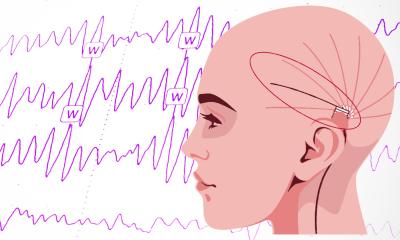Epilepsy is highly individual, and finding the right treatment often requires trial and error. The more accurate information clinicians have, the better the chances of identifying the right treatment sooner
Peter Murphy
This trial will assess whether long-term, outpatient sqEEG monitoring can address these challenges. By capturing brain activity in real-world settings over extended periods, the system could help clinicians detect seizure patterns that might otherwise go unnoticed, particularly those that happen at night, support earlier diagnosis, and reduce the need for repeated hospital visits.
Professor Delanty said: “FutureNeuro’s involvement reflects our commitment to embracing the huge progress in the safe use of technology in clinical practice. This trial will help us better understand the clinical impact of long-term brain monitoring, with the potential for significant downstream benefits – such as reducing inpatient admissions, shortening time to diagnosis, and avoiding unnecessary treatments. By improving diagnostic accuracy and efficiency, this type of technology could ease pressure on epilepsy services, support better resource allocation, and ultimately lead to more personalised and cost-effective care for patients.”
Dr Daniel Costello added: “This diagnostic tool holds significant potential for clinical care. It could help detect seizures that go unrecognised, provide a clearer picture of seizure frequency, and reveal the cumulative impact on brain function. Just as importantly, it may offer reassurance when seizures are well-controlled and help distinguish between epileptic seizures and other events. The potential to monitor brain activity long-term, outside of hospital, is an important step forward.”
Peter Murphy, Epilepsy Ireland CEO commented: “We are excited by the potential of this trial and delighted that so many Irish patients are involved, highlighting the world-class epilepsy research taking place here. Epilepsy is highly individual, and finding the right treatment often requires trial and error. The more accurate information clinicians have, the better the chances of identifying the right treatment sooner. This innovative technology could provide that insight without long hospital stays or lengthy waiting lists, improving quality of life for people with epilepsy while easing pressures on hospital services. We will follow this important trial closely and look forward to its findings.”
This trial represents a fundamental shift toward precision medicine in epilepsy care, where treatment decisions can be based on comprehensive, objective data rather than limited traditional monitoring methods. The strong Irish participation in this international study reflects FutureNeuro’s established position in translating brain research discoveries into clinical practice, demonstrating how Irish research centres are driving innovation in global epilepsy care.
Source: RCSI University of Medicine and Health Sciences

